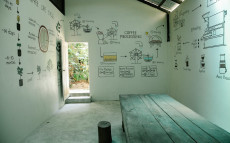- pathfindersAI
- Job Profile
Family and Consumer Sciences Teachers, Postsecondary
Summary
Family and Consumer Sciences Teachers, Postsecondary: A Comprehensive Career Guide
What They Do
Family and Consumer Sciences (FCS) Teachers at the postsecondary level play a pivotal role in shaping both the professional aspirations and personal competence of their students. These educators specialize in areas crucial to everyday living, such as nutrition, child development, family management, consumer education, and hospitality. Their role transcends traditional teaching; they are mentors, advisors, and sometimes confidants, all striving to prepare students not just for a job, but for life. In today's complex and dynamic world, the knowledge and skills imparted by FCS teachers are more relevant than ever, helping to build a foundation for well-rounded, successful professionals and individuals.
Job Responsibilities
The duties of FCS teachers extend far beyond the classroom setting. They are responsible for designing engaging curricula that meet educational standards while also addressing real-world issues and contemporary challenges. Lecture preparation, grading, and assessment formation are fundamental aspects of their weekly responsibilities. Additionally, they often head research projects, guiding students through the intricacies of scientific inquiry and data analysis. Administrative tasks, such as coordinating department activities, assisting in faculty meetings, and staying current on educational trends and technologies, form another crucial part of their workload. Moreover, they provide academic counseling, aiding students in career planning and advising on best practices for personal and familial success.
Essential Skills
Succeeding as a postsecondary FCS teacher requires a diverse set of skills. Strong communication abilities are paramount, enabling educators to convey complex ideas effectively. Organizational skills are equally vital, as teachers must balance lesson planning, grading, and various administrative duties. A solid grasp of research methodologies ensures they can oversee significant research projects, often involving both qualitative and quantitative analysis. Furthermore, interpersonal skills are essential; building rapport with students, colleagues, and the broader academic community enhances the learning environment and fosters collaboration. Critical thinking and adaptability allow these educators to stay relevant in their field, integrating new findings and trends into their curricula seamlessly.
Educational Pathways
The journey to becoming a postsecondary FCS teacher typically begins with earning a bachelor's degree in Family and Consumer Sciences or a closely related field. This foundational education provides a broad overview of essential topics such as nutrition, family studies, and consumer behavior. Aspiring teachers then usually pursue a master’s degree, offering a more focused study area or specialization, such as child development or culinary arts. While a doctorate is not always necessary, it can significantly enhance career prospects and is often required for tenure-track positions at universities. Practical experience, such as internships or relevant work in the FCS field, is invaluable, providing hands-on skills and enhancing theoretical learning. Additionally, maintaining professional certifications and engaging in continuous professional development are critical to staying current in the field.
Career Prospects
The career outlook for postsecondary FCS teachers is promising, driven by the ongoing need for professionals in education and increasingly, in various private sector roles. According to recent data, the demand for postsecondary educators is expected to grow in the coming years, spurred by rising enrollments in colleges and universities. FCS teachers may also find opportunities in extension programs, community education, and policy advocacy, where their expertise can influence broader societal changes. While job availability can vary based on geography and educational institution, well-qualified candidates with a robust academic background and practical experience are highly sought after.
Conclusion
In conclusion, the role of a Family and Consumer Sciences Teacher at the postsecondary level is both demanding and incredibly rewarding. These educators not only impart vital knowledge and skills but also shape the personal and professional lives of their students. Through a combination of strong communication, organization, and critical thinking skills, along with a thorough educational grounding and ongoing professional development, FCS teachers can enjoy a fulfilling career with diverse possibilities. As society continues to recognize the importance of family and consumer sciences, the impact of these educators will undoubtedly remain significant, equipping future generations with the tools necessary for personal success and societal contribution.
Video
Compensation
| State | Median Salary | Median Hourly | Positions |
|---|---|---|---|
| AL | 60,250 | * | 90 |
| AR | 66,760 | * | 30 |
| CA | 159,450 | * | 300 |
| IL | 79,580 | * | 180 |
| IN | 65,370 | * | 130 |
| IA | 84,950 | * | 90 |
| KY | 63,350 | * | 90 |
| LA | 74,380 | * | 50 |
| MI | 81,750 | * | 60 |
| MS | 81,030 | * | 80 |
| MO | 65,090 | * | 110 |
| NJ | 138,250 | * | 50 |
| NC | 79,220 | * | 210 |
| OH | 60,830 | * | 120 |
| OK | 70,180 | * | 70 |
| PA | 64,330 | * | 150 |
| SC | 68,070 | * | 50 |
| UT | 69,840 | * | 140 |
| VA | 65,460 | * | 100 |
| WA | 64,470 | * | 100 |
| WI | 81,030 | * | 40 |
Similar Occupations
In this area you will find other occupations that are close to the one you were viewing in tasks, knowledge and work environment. If the primary job profile you are viewing isn't quite to your liking, take a look around and see what else is available.
Basic and Premium Accounts have more alternative occupations available than the Free account.

Agricultural Sciences Teachers, Postsecondary - 25-1041.00
Agricultural Sciences Teachers, Postsecondary, educate and train students in subjects related to agriculture, including crop production, soil science, and agribusiness. They also engage in research, publish scholarly articles, and may advise students on academic and career paths in the agricultural field.
-
$85,260/yr
Median Pay -
7,550
Number of Jobs

Career/Technical Education Teachers, Middle School - 25-2023.00
Career/Technical Education Teachers, Middle School design and deliver curricula that provide students with hands-on, practical skills in various trades and technical fields, such as information technology, healthcare, and engineering. They prepare students for high school programs, future careers, or both by integrating academic knowledge with real-world applications.
-
$63,860/yr
Median Pay -
12,210
Number of Jobs